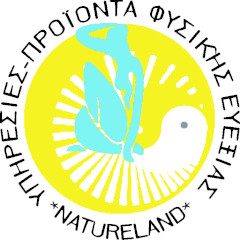In aromatherapy we use 100% pure, clean, certified oils. An alternative method, special branch of phytotherapy that uses the beneficial properties of essential oils of aromatic plants, for improving and maintaining health, beauty and mood of man. The application of essential oils (massage, inhalations, baths etc.) relaxes and fully activates a subject. When the application is hiring the therapeutic properties of essential oils. Relaxing or stimulating depending selection oils. It works refreshingly for skin, body and mind. Precious health and beauty secret!

.
Essential oils have been used for nearly 6,000 years, with the aim of improving a person’s health or mood.
Essential oils are made from flower, herb, and tree parts, like bark, roots, peels, and petals. The cells that give a plant its fragrant smell are its “essence.” When an essence is extracted from a plant, it becomes an essential oil.
It takes a lot of plant product to make essential oils. More than 200 pounds of lavender flowers are used to make just 1 pound of lavender essential oil.
Not all products made with plant essence are essential oils. True essential oils aren’t blended with other chemicals or fragrances. They’re made using a specific process that doesn’t change the chemistry of the plant.
The National Association for Holistic Aromatherapy (NAHA) aromatherapy as “the therapeutic application or the medicinal use of aromatic substances (essential oils) for holistic healing.”
In 1997, the International Standards Organization (ISO) an essential oil as a “product obtained from vegetable raw material, either by distillation with water or steam, or from the epicarp of citrus fruits by a mechanical process, or by dry distillation.”
A range of essential oils have been found to have various degrees of antimicrobial activity and are believed to have antiviral, nematicidal, antifungal, insecticidal, and antioxidant properties. Aromatherapy applications include massage, topical applications, and inhalation.
However, users should be aware that “natural” products are also chemicals, and they can be hazardous if used in the wrong way. It is important to follow the advice of a trained professional when using essential oils.
Aromatherapy is a complementary therapy. It does not provide a cure for diseases, rashes or illnesses, but it can support conventional treatment of various conditions.
It has been shown to reduce:
-
Nausea
-
Pain and body aches
-
Anxiety, agitation, stress, and depression
-
Fatigue and insomnia
-
Muscular aches
-
Headaches
-
Circulatory problems
-
Menstrual problems
-
Menopausal problems
-
Alopecia, or hair loss
-
ect.

Some types of psoriasis may find relief with aromatherapy, but a healthcare professional should advise about use and application.
Digestive problems may benefit from peppermint oil, but it should not be ingested.
Tooth ache and mouth sores can be relieved by clove oil, but this, too, should only be applied topically and not swallowed.
.
 .
.
Herbalism refers to folk and traditional medicinal practice based on the use of plants and plant extracts. Herbalism is also known as phytotherapy.
The use of herbs to treat disease is almost universal among non-industrialized societies. A number of traditions have come to dominate the practise of herbal medicine in the west at the end of the twentieth century:-
- The Western, based on Greek and Roman sources,
- The Ayurvedic from India, and
- Chinese herbal medicine.
Many of the pharmaceuticals currently available to Western physicians have a long history of use as herbal remedies, including opium, aspirin, digitalis, and quinine.
